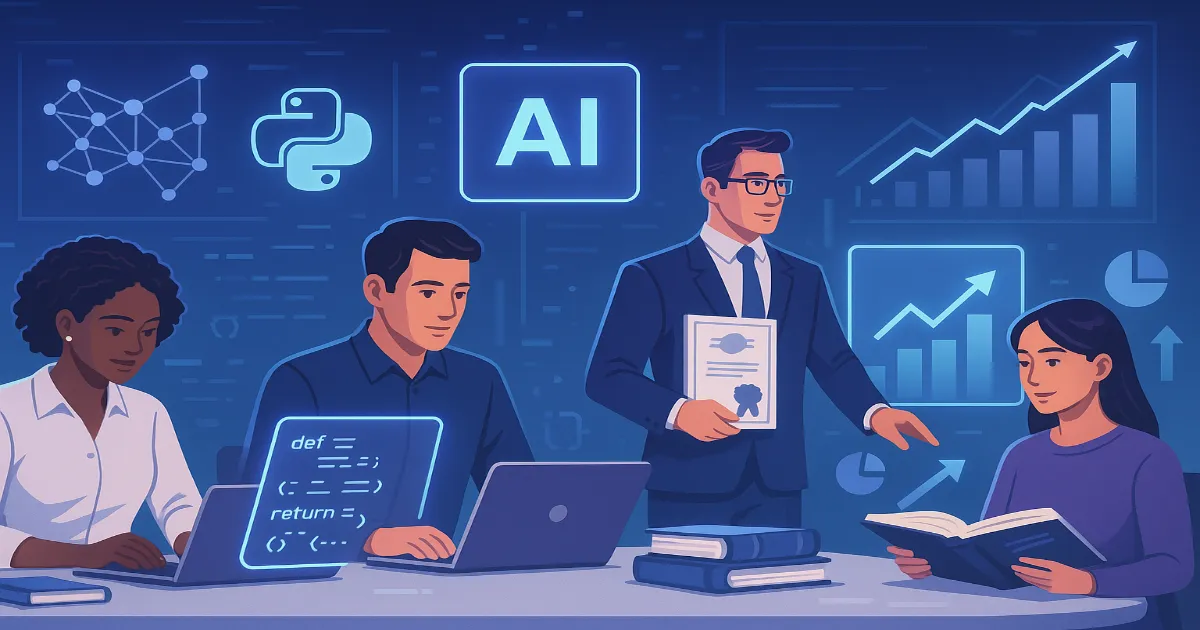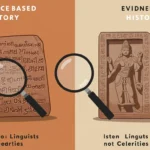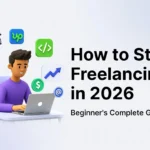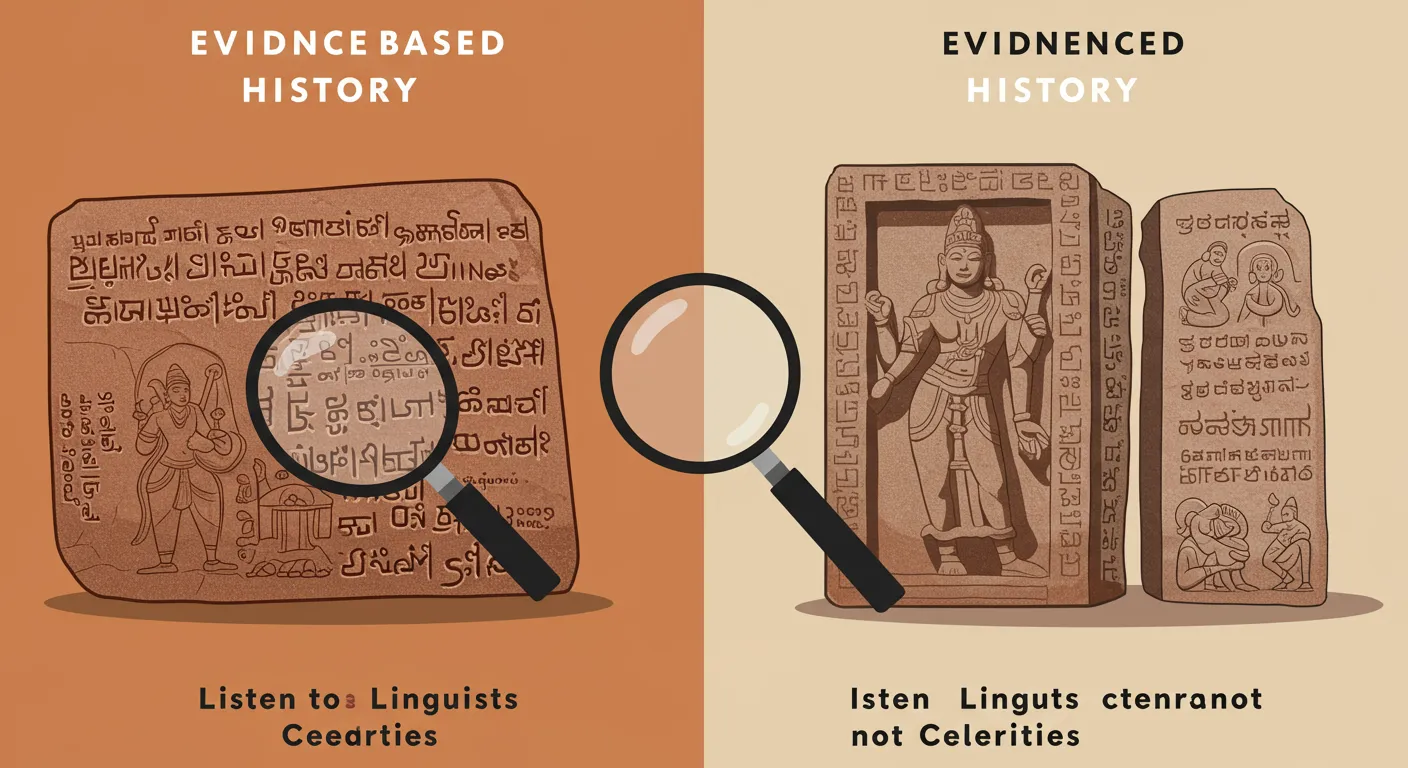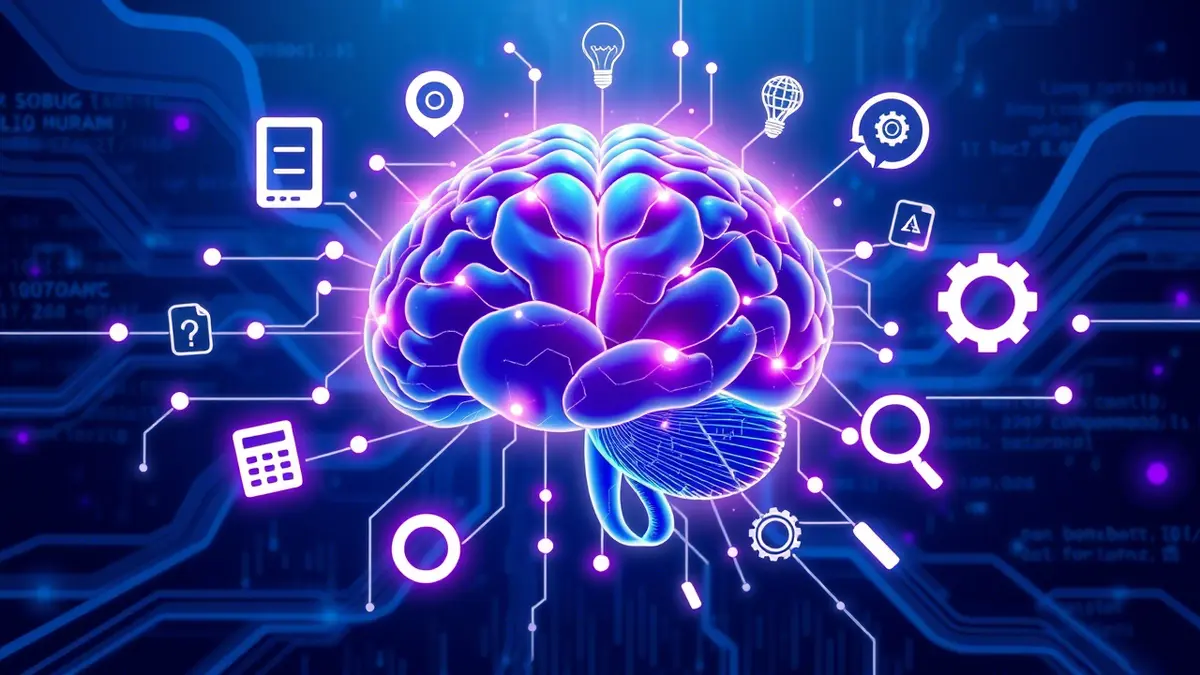AI literacy is about understanding AI’s capabilities and limits in real-world work. As the World Economic Forum warns, “AI skills are becoming more important than job experience”. LinkedIn data confirms this shift: in 2024, AI-related job postings jumped 61%, and now nearly 1 in 4 new tech roles explicitly requires AI skills. In other words, employers expect professionals to learn AI literacy skills for career growth, and candidates who can apply AI tools (from data analysis to ChatGPT prompts) will stand out in the job market.
Defining AI literacy involves both technical know-how and critical thinking. As one expert summarizes, to be AI literate, you should “understand how generative AI works, be able to use it effectively, and know how to evaluate its output…and understand its weaknesses and dangers”. In short, it’s not just knowing what AI is but mastering how to use AI (e.g. training or prompting models) and how to question its results. Industry leaders stress that gaining AI skills will “future‑proof your career”, boosting productivity and opening new opportunities.
Why AI Literacy Matters
- Fast-growing skill demand: The World Economic Forum finds that “AI and big data” top the list of rapidly growing skills needed by 2030. In practice, employers are already seeking these abilities: LinkedIn reports a 61% year-over-year surge in AI job listings, and AI competencies now appear in about 19% of tech job ads (over double the 2022 share).
- Employer expectations: Surveys consistently show recruiters preferring AI-savvy candidates. In one study, roughly two-thirds of business leaders said they wouldn’t hire a candidate lacking AI skills. Many would rather hire a less-experienced person with AI know-how than a veteran without it.
- Across industries: AI literacy isn’t just for coders. Every sector is using AI in some form. For example, banks and finance companies rely on AI for fraud detection and algorithmic trading, manufacturers use AI-driven predictive maintenance to reduce downtime, and hospitals use AI for medical imaging analysis and personalized treatment plans. Meanwhile, marketers use AI to target ads and generate content, and educators employ AI tools to personalize learning. Being comfortable with AI tools and concepts gives you an edge in all these fields.
- Global shifts: As one report notes, about 40% of workers will need new skills within three years due to AI-driven changes. That emphasizes why upskilling in AI now – through learning, practice, and possibly certification – is critical to staying employable.
Essential AI Literacy Skills
- Data literacy: The foundation of AI is data. Data literacy means you can read, analyze, and communicate data effectively. As DataCamp puts it, data literacy is “the ability to read, write, analyze, communicate, and reason with data”. In practice, this means being comfortable reading graphs and tables, extracting key insights, and using data to support decisions. Employers value this skill highly – one survey found 79% of leaders would pay a premium for candidates with strong data skills.
- Machine learning fundamentals: You don’t need to be a machine-learning engineer, but you should understand how AI models learn from data. Industry experts note that “machine learning has become a critical … way most parts of AI are done,” and leaders should grasp its basic principles, capabilities, and limitations. In other words, know the difference between supervised vs. unsupervised learning, what a model can (and can’t) do, and why AI sometimes makes mistakes. This helps you use AI responsibly and recognize when to double-check its outputs.
- Programming skills: Basic coding ability (especially in Python or similar languages) is often necessary to work effectively with AI tools. Many AI libraries and platforms (TensorFlow, PyTorch, scikit-learn, etc.) use Python, and even non-technical roles benefit from automating tasks or customizing AI. As a prompt engineer notes, being “proficient with Python” is important because of its clean syntax and powerful AI libraries. At minimum, learning to write simple scripts, understand code examples, and manipulate data in code will greatly expand what you can do with AI tools.
- Prompt engineering & AI tools: The rise of generative AI means prompt engineering is an emerging core skill. This involves crafting clear, specific queries to get useful output from chatbots or LLMs. For example, Coursera explains that prompt engineering guides a generative AI to produce relevant results with minimal prompts. It also requires iterative refinement – tweaking your prompts based on the AI’s answers to get better results. Additionally, being AI-literate means knowing how to use popular AI tools (like ChatGPT, Copilot, or domain-specific AI apps), understanding what they do well and where they fall short.
- Ethical and critical thinking: AI literacy isn’t just technical. You must also be aware of bias, privacy, and ethical considerations. New regulations (e.g. California and EU laws) explicitly require understanding AI’s social and ethical impacts – from data privacy to algorithmic fairness. This means asking questions like: Is the AI output trustworthy? What data was it trained on? Could it be biased? Developing a critical mindset ensures you use AI responsibly and can explain its benefits and risks in your work context.
A Roadmap to AI Literacy
- Start with the basics. Enroll in introductory AI and data courses to build foundations. Many are available for free or at low cost (e.g. Coursera, edX, Khan Academy, or Google’s free AI courses). Begin with learning basic data handling, programming (Python), and key AI concepts. Structured resources (videos, tutorials, or textbooks) give you vocabulary and context.
- Hands-on practice. Apply what you learn through small projects. Use free platforms like Google Colab or Kaggle Notebooks to run code without installing anything. Try a simple machine-learning project (e.g. analyze a dataset and build a predictive model) or customize an AI chatbot. Contributing to open-source AI projects on GitHub or doing Kaggle competitions (even beginner-level) is a great way to learn by doing.
- Experiment with AI tools. Familiarize yourself with AI-driven software relevant to your field. If you’re a marketer, try AI analytics tools; if you’re in finance, explore Python packages for data analysis. Use ChatGPT or similar LLMs for drafting emails, summarizing reports, or generating code snippets. Practice prompt engineering: be clear and specific in your instructions, give examples, and refine prompts until the AI gives useful answers.
- Continuous learning & certification. AI is evolving fast, so make learning ongoing. Join online AI communities (Stack Overflow, Reddit’s r/MachineLearning, LinkedIn groups) to ask questions and see real-world examples. Consider paid options when ready: certifications like Google’s AI certificates, Microsoft’s AI Fundamentals (AI-900), AWS Certified Machine Learning, or university nanodegrees can validate your skills. These often include hands-on labs and projects to deepen your knowledge.
- Network and teach. Build your AI network by participating in workshops, hackathons, or meetups (many are free or sponsored). Sharing your knowledge – for instance, by writing a blog post about an AI project you did or helping others with AI tools – solidifies your skills and raises your profile. Remember, explaining AI concepts to colleagues or clients is itself a part of AI literacy.
Learning Resources (Free vs. Paid)
There are many free and paid learning paths for AI literacy. Below is a sample of resources you can mix and match as you learn:
| Resource Type | Free Examples | Paid Examples |
| Online Courses & Tutorials | Coursera (audit mode), edX (audit), Khan Academy, Fast.ai, YouTube (Google AI Crash Course videos) | Coursera Specializations/Certificates (Andrew Ng’s AI courses), Udacity Nanodegree (AI/Machine Learning) |
| Certifications & Credentials | IBM or Google Cloud beginner AI badges (some free paths), Microsoft Learn courses (e.g. AI-900 learning) | AWS Certified ML Specialty, Google Professional ML Engineer, Microsoft Certified: Azure AI Engineer |
| Communities & Projects | Kaggle (competitions and kernels), GitHub open-source projects, AI/ML forums (e.g. Reddit, StackExchange), local Meetup groups | (Often free) Paid bootcamp cohorts or paid communities (e.g. DataCamp subscription, or premium Slack groups) |
| Tools & Practice Environments | Google Colab, free tier of AWS/GCP/Azure, open-source libraries (TensorFlow, PyTorch, Scikit-learn) | Paid cloud compute credits (e.g. AWS/Azure credits), commercial AI platforms (DataRobot, H2O Driverless AI) |
These resources can be combined. For example, you might start with a free Coursera course, build a project in Google Colab, then later invest in an AWS/GCP certification. The key is continuous learning: use free materials (often marked as “no charge” on sites like Google AI) to get started, and add paid options when you want a credential or deeper hands-on training.
Summary
AI literacy is becoming a must-have for career growth in 2025 and beyond. By developing skills like data literacy, basic programming, machine learning understanding, prompt engineering, and ethical awareness, you join a growing group of professionals ready for the AI-driven workplace. The steps above – learning fundamentals, practicing with projects, experimenting with tools, and engaging communities – provide a clear roadmap. As one survey notes, up to 40% of workers will need new skills in the next few years due to AI, so starting now is crucial.
In short, actively learning AI literacy skills for career growth is the best way to stay relevant. Combine both free and paid learning resources (see table above), set practical goals (build an AI project, earn a certificate), and keep iterating on your knowledge. With dedication and the right strategy, you’ll be well-positioned to thrive as AI reshapes every industry.
Key Takeaways: AI literacy blends technical skills (data, coding, ML) with critical judgment. It’s highly valued by employers – in many cases more than experience. By following a structured learning plan and using available resources, you can build a competitive advantage and ensure your career continues to grow in an AI-powered future.
FAQs related to the blog “How to Become AI Literate: Essential Skills for 2025 and Beyond”
Why should I learn AI literacy skills for career growth in 2025?
AI is rapidly transforming every industry, and employers are prioritizing candidates who can work alongside AI tools effectively. By learning AI literacy skills, you not only future-proof your career but also unlock new roles, boost productivity, and stand out in a competitive job market.
Can non-tech professionals learn AI literacy skills for career growth?
Absolutely. AI literacy isn’t just for coders or data scientists. Professionals in marketing, healthcare, finance, education, and even HR can learn AI literacy skills for career growth by mastering tools like ChatGPT, understanding data, and making informed, ethical decisions using AI-powered insights.
What’s the first step to learn AI literacy skills for career growth?
Start by building a foundation in data literacy, basic AI concepts, and tools like ChatGPT or Google Colab. Free courses on Coursera, Khan Academy, and YouTube are excellent starting points to learn AI literacy skills for career growth without any prior coding experience.
Are certifications necessary to learn AI literacy skills for career growth?
While not mandatory, certifications from Google, Microsoft, or AWS can significantly enhance your credibility. They validate your ability to apply AI knowledge in real-world scenarios—helping you learn AI literacy skills for career growth in a structured, industry-recognized way.
What tools or platforms can help me learn AI literacy skills for career growth?
Platforms like Coursera, DataCamp, Kaggle, GitHub, and Google Colab offer both free and paid ways to learn AI literacy skills for career growth. They allow hands-on practice with AI tools, real datasets, and guided learning paths tailored to different experience levels.


